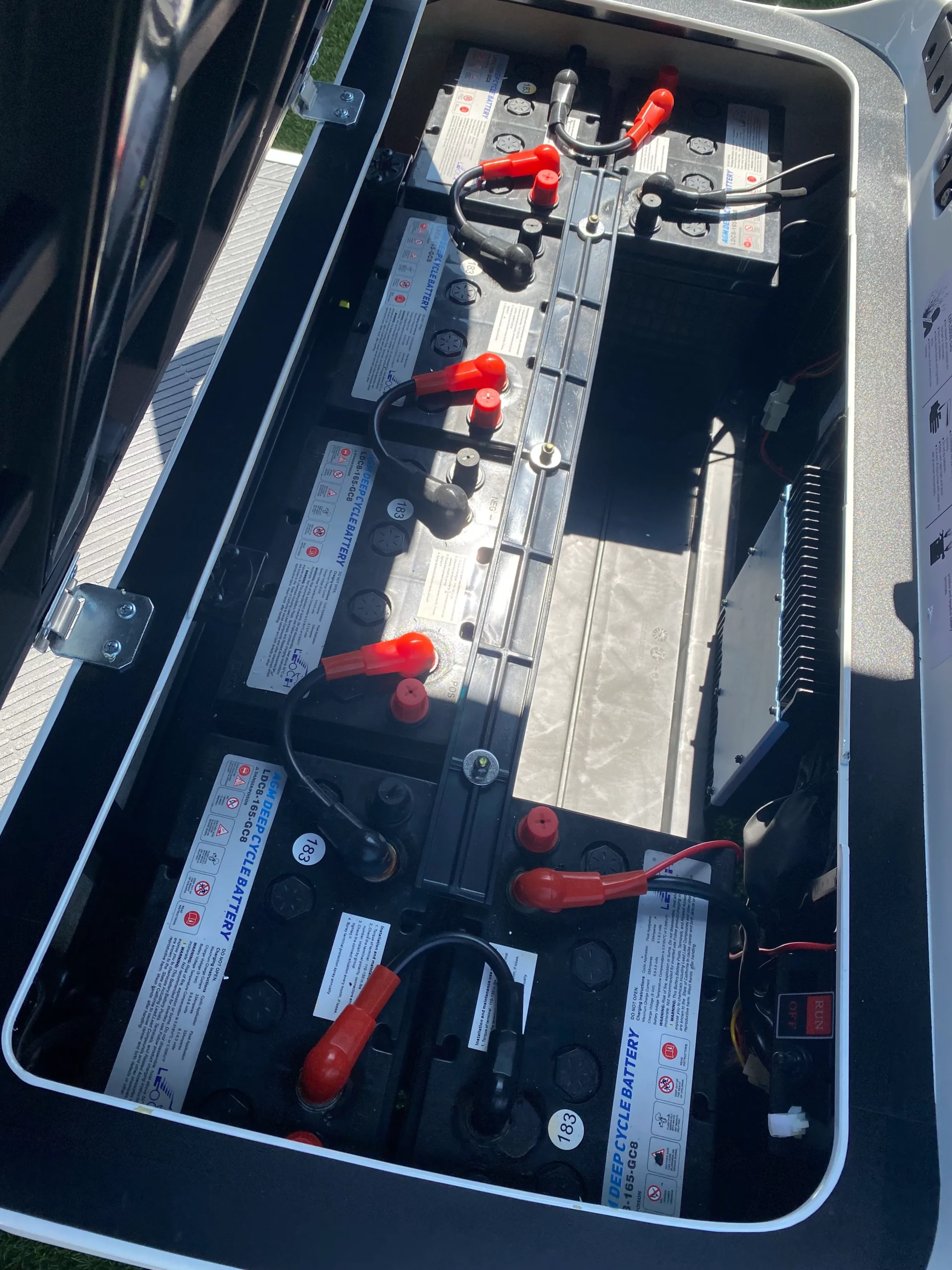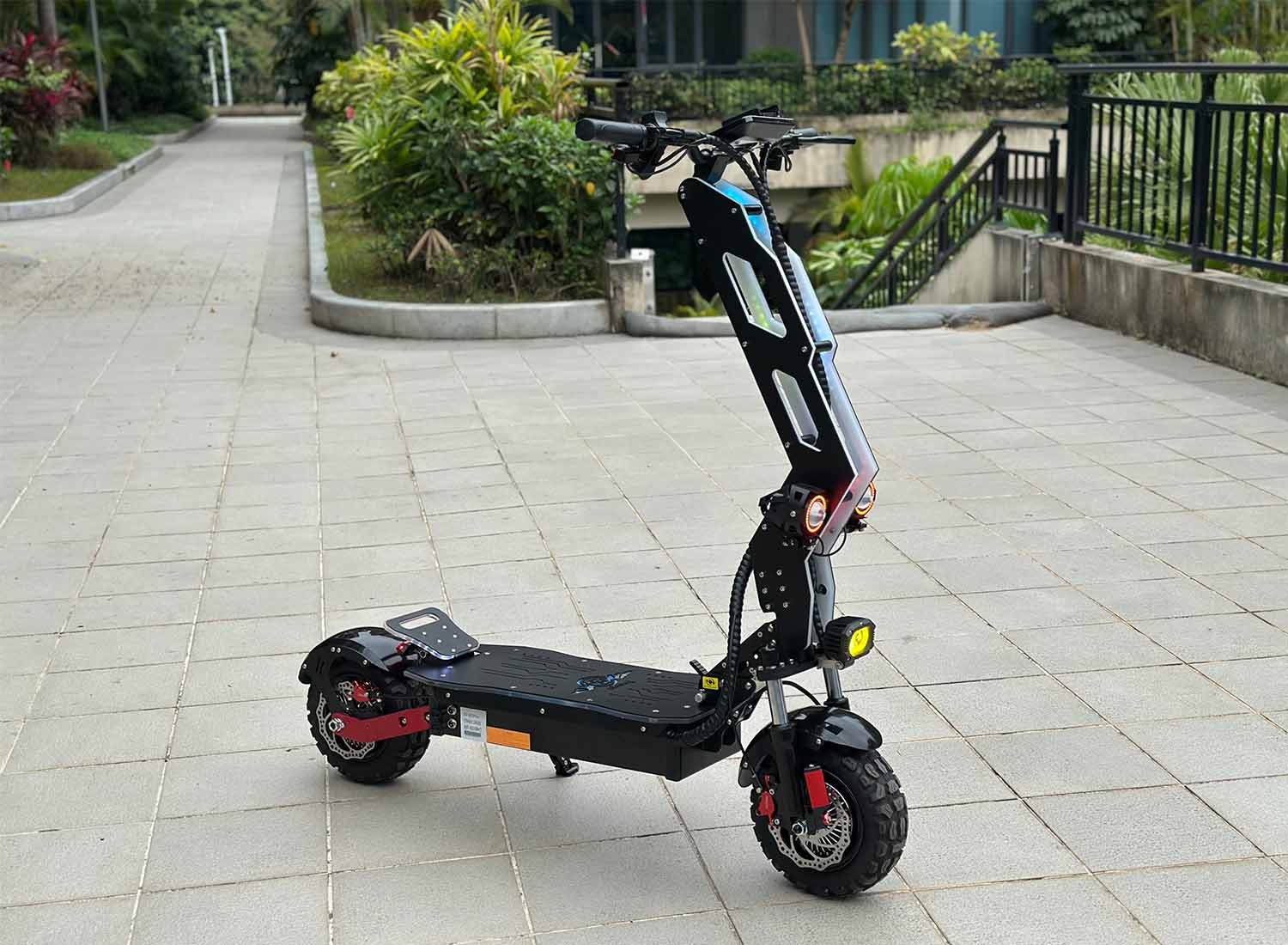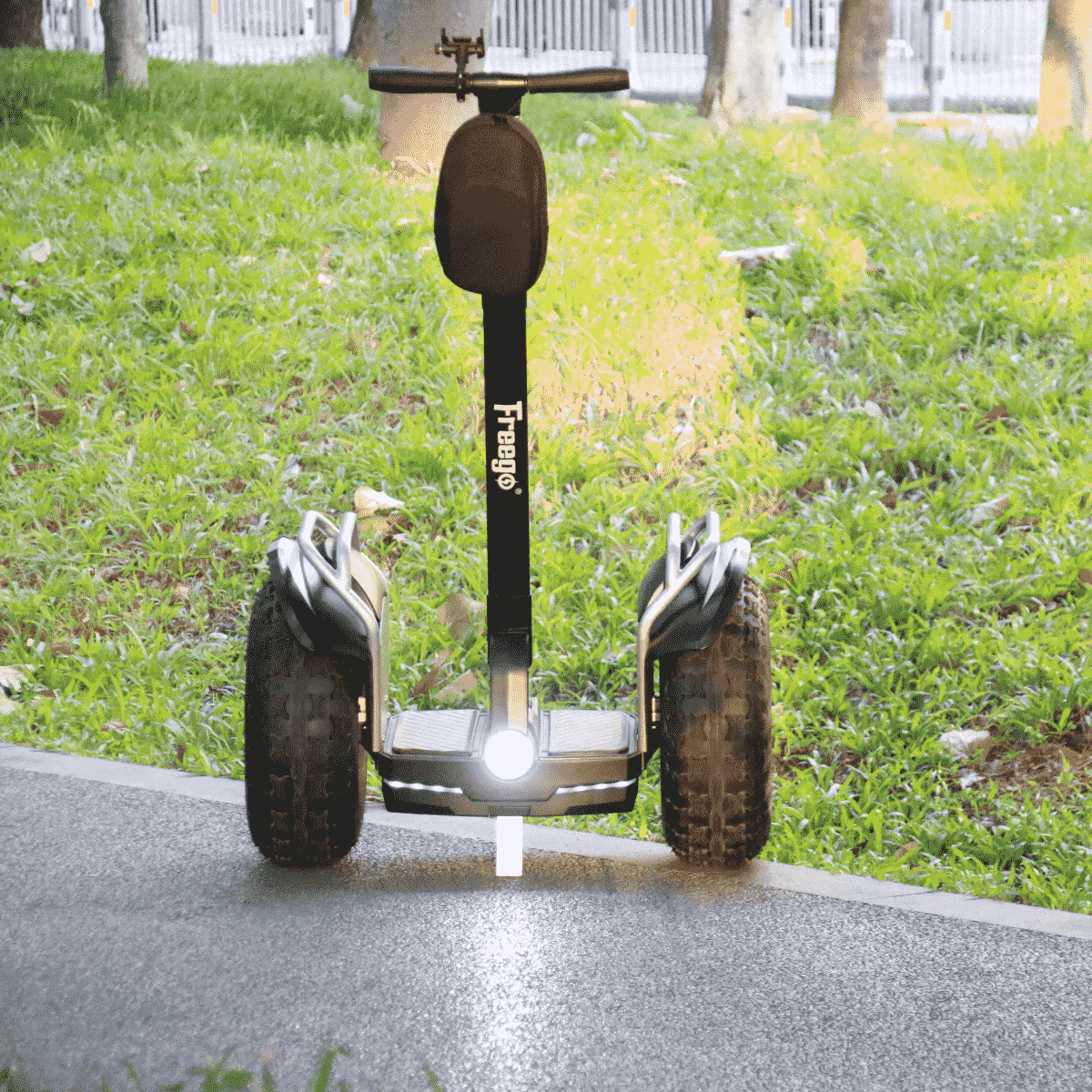While it may seem a simple task to choose the right battery for your golf cart, not all batteries are created equal. Golf cart power sources affect multiple areas like ride quality, maintenance spend and frequency just to name a few. You might be wondering whats the difference between 48v and 51.2v golf cart batteries. We are going to break down the key differences between the most popular choices for golf cart batteries – 48V and 51.2V. Our goal here is to help you decide which is right for your cart.
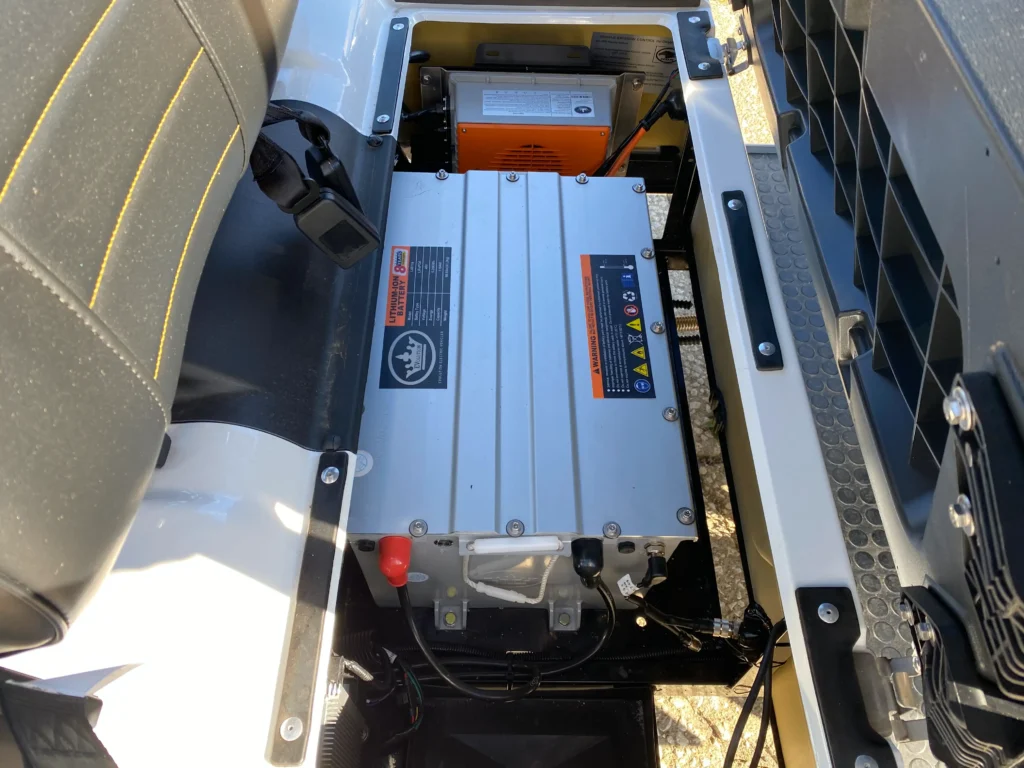
Why Voltage Matters for Golf Cart Batteries
If you want to understand the difference between 48V and 51.2V batteries, you need to know what makes voltage so important. Voltage determines the maximum potential power output. This affects your golf cart’s performance with speed, torque, and how well it will handle rugged terrain.
With a higher voltage you can expect increased power and torque. Consistent performance on longer drives or challenging terrain comes from voltage stability. For years, 48V batteries have been the standard in higher-end electric golf carts. Recently, 51.2V batteries (especially Lithium-Ion batteries) have gained traction and become the go-to for their durability and improved performance. Lets talk about what sets them apart.
48V Batteries: A Reliable Standard
48V have been the standard for many manufacturers and golf cart owners for good reason. 48V gives you a balance of power and efficiency that can be used in most recreational golf carts.
These batteries are widely available and therefore quite affordable. They can be used to upgrade most older golf carts without any modifications. 48V batteries are easy to maintain and don’t have many complex features. On the other hand, 48V batteries are heavier and tend to experience voltage lag under a heavy load. You will likely feel a decrease in power with a fully loaded cart, even more so when you are on a steep incline or that rough terrain we talked about. Do this often and you will have to charge your cart more frequently, which can be frustrating if you like to go on longer trips.
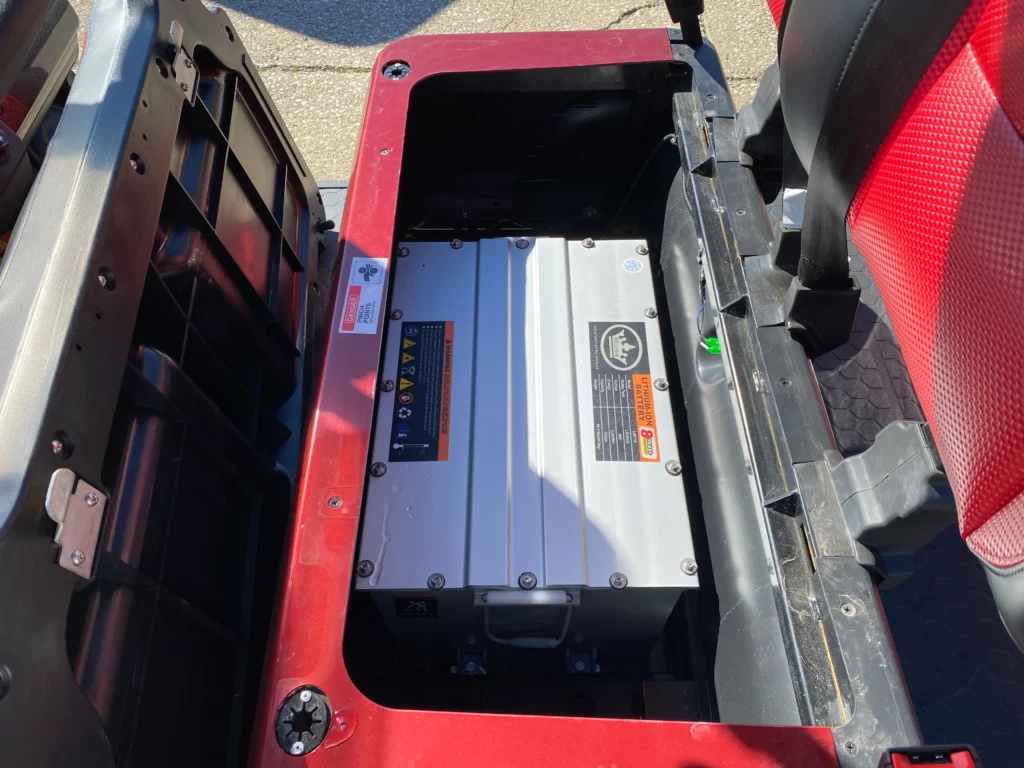
51.2V Batteries: The Newer Powerhouse
51.2V batteries (especially the lithium options) are growing popular with golf cart owners looking for increased power and efficiency. Just by the numbers, 48V and 51.2V are so close you would assume there would not be that much difference but 51.2V batteries are noticeably different in real world scenarios.
The power output will feel more stable. You will get more consistent speed and torque throughout your rides. Lithium-Ion batteries weigh much less than lead-acid batteries and this leads to a more efficient, agile cart. Lithium-Ion batteries specifically have a longer lifespan and require less maintenance compared to alternative battery options. From a maintenance perspective, you same both time and money. The downside here is that 51.2V batteries cost more upfront and you are less likely to be able to put on in your existing golf cart if it was designed for 48V lead acid batteries. The improved performance can make this a worthy investment for frequent travelers or those going on the road less traveled.
Performance Comparison: Speed, Torque, and Stability
There are a few key areas where having a 51.2V battery makes a difference in performance. One of those is torque. This becomes apparent when accelerating from a dead stop and when moving uphill. The power output is generally smoother and more consistent over a full day of use. You won’t have the same voltage sagging that you may experience in a 48V lead-acid setup.
51.2V Lithium-Ion batteries maintain power output better under stress. If you live in a rural area or use your golf cart to transport people or cargo around, this will absolutely be worth the investment.
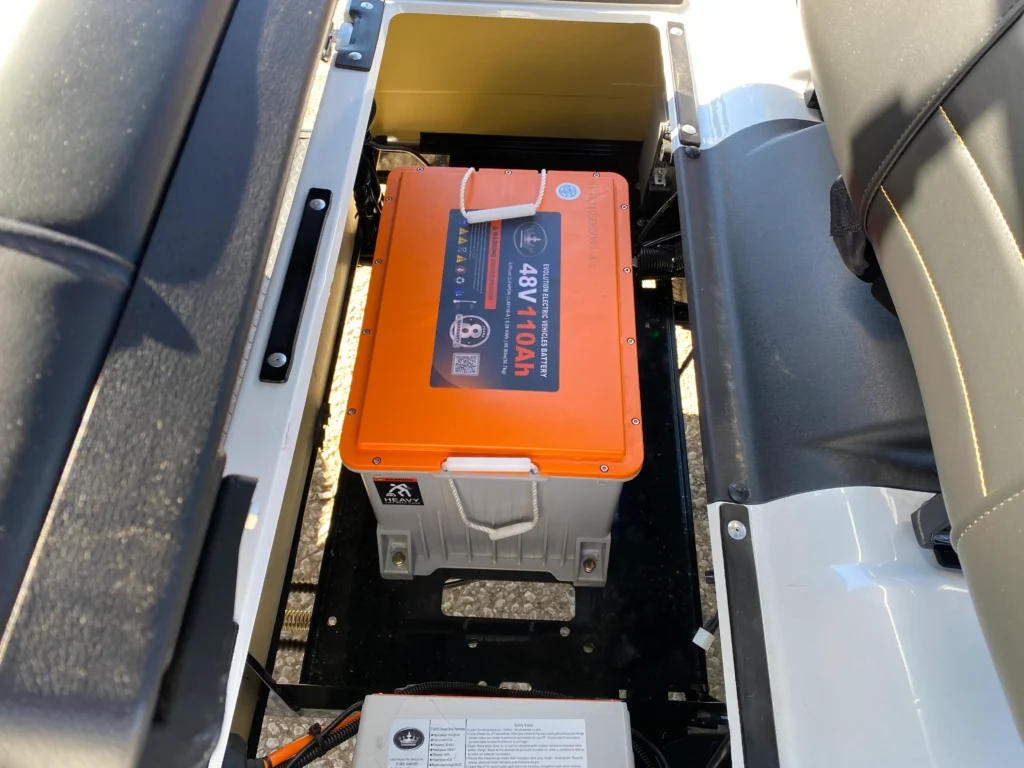
Cost and Maintenance Considerations
Cost is on the top of people’s mind when choosing a battery and that makes sense(cents). A 48V battery is less expensive compared to the upfront cost of 51.2V lithium-ion. Most people will be drawn to this while shopping, but you should consider the long-term expenses also. This is where the lithium-ion battery shines. The standard lifespan of a lithium-ion battery is around 10 years while lead-acid batteries range from 3-5 years. This means unless you take extremely good care of your lead acid batteries you will need to buy 2 sets before the lithium-ion battery would need replaced. Lithium-Ion batteries also require virtually 0 maintenance outside of cleaning and proper charging habits. This information usually sways people to the other side of the fence when making a golf cart battery purchase.
Environmental Impact and Efficiency
51.2 Lithium-Ion batteries are generally more energy efficient and run longer on the same charge. Lead-acid batteries use more energy and typically need to be charged more frequently. They are also more difficult to recycle. 51.2V batteries have more sustainable end of life options making them the greener choice.
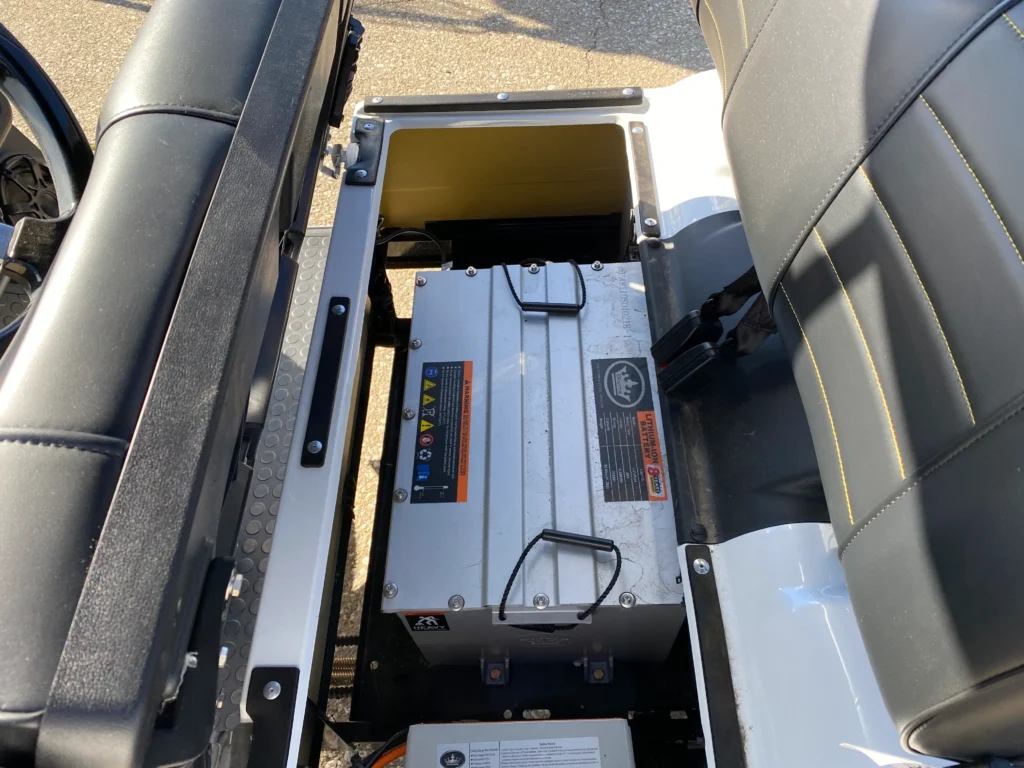
Choosing the Right Battery for Your Golf Cart
Ultimately, choosing between a 48V and 51.2V battery depends on your specific needs. Someone in the suburbs will absolutely have a different use case than someone using a golf cart around their farm. If you drive on flat ground 90% of the time by yourself and prefer to keep the cost down, a 48V battery is a great option for you. If you are taking the cart up a mountain trail with 3 of your friends 4 days a week, you may want to get a 51.2V battery for the added performance benefits.
Consider these factors as you make your decision:
Frequency could be different for people. Frequency could mean you use the cart daily for an hour or you are using it for 8 hours a day on weekends. Frequency is important to consider when making a golf cart battery purchase, but your budget and the daily terrain should be right up there with it. You can make an argument for each battery depending on what you value most. Just ensure you do your homework after learning whats the difference between 48v and 51.2v golf cart batteries.

Conclusion
Understanding the difference between 48V and 51.2V can help you feel confident before pulling the trigger. Both have their pros and cons, but it all boils down to the owners’ goals for their golf cart. If you still aren’t sure, give the pros at Hartville Golf Carts a call and ask them to help you find the right battery fit. We hope this helps you understand whats the difference between 48v and 51.2v golf cart batteries.


